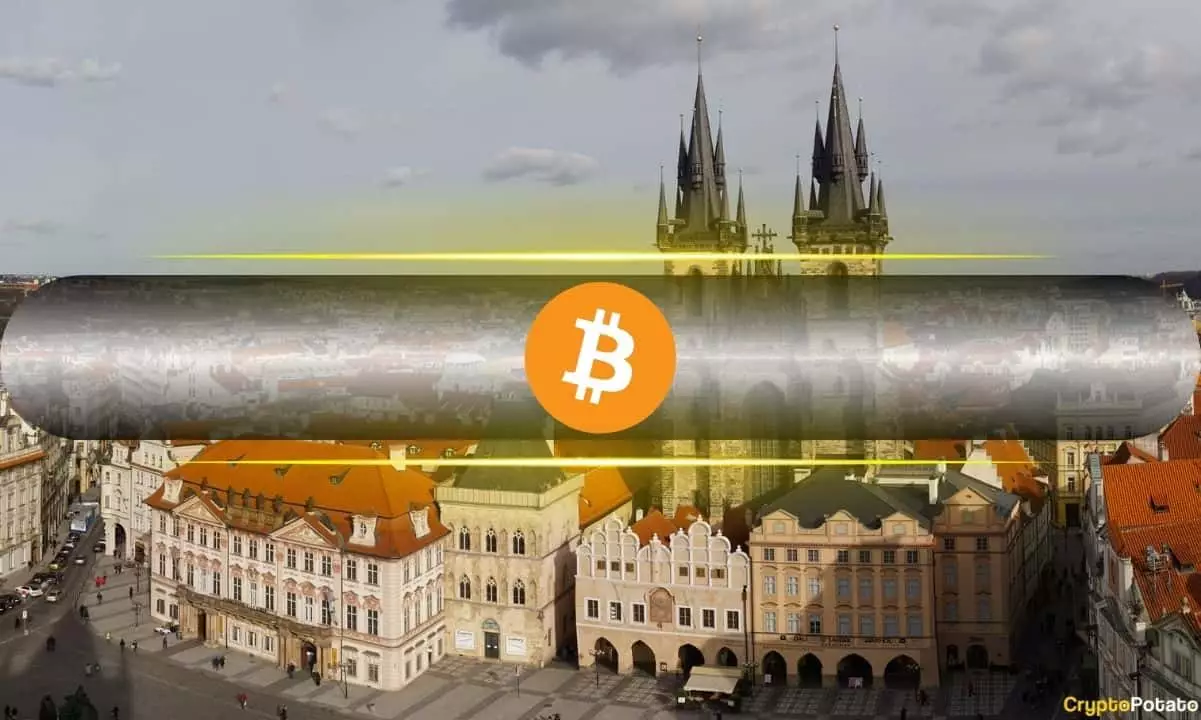As the landscape of global finance evolves, cryptocurrencies, particularly Bitcoin, are gaining traction as potential alternatives to traditional reserve assets. This shift is not limited to private investors or tech enthusiasts; central banks and government entities worldwide, from the United States to Switzerland, are seriously contemplating the role of Bitcoin in their monetary policies. The Czech Republic’s central bank has recently joined this movement, indicating growing institutional interest in diversifying foreign exchange reserves with digital currencies.
Governor Aleš Michl of the Czech National Bank (ČNB) has brought Bitcoin into the conversation, considering it as a tool for diversification. In an interview, he acknowledged the possibility of acquiring a modest amount of Bitcoin. However, he emphasized that any such move would require approval from the ČNB’s board and would not represent a major shift in the bank’s investment strategy. This cautious yet open approach reflects a broader trend where Central Banks are exploring how cryptocurrencies might fit into their portfolios, emphasizing careful consideration rather than impulsive action.
The political climate plays a significant role in the evolving narrative around Bitcoin. The recent election of Donald Trump, who previously held skeptical views on Bitcoin, has marked a pivotal shift. Trump’s newfound support for the cryptocurrency as a strategic asset and his proposal for a U.S. Bitcoin reserve signals a potential turning point. Advocates argue that incorporating Bitcoin into national reserves could provide a buffer against inflation and currency devaluation. The notion of a Bitcoin reserve is fueled by commentary from prominent figures like Senator Cynthia Lummis, who see it as a vital safeguard for economic stability. However, dissenting voices in Congress continue to highlight the inherent risks of digital currencies.
The inclination towards Bitcoin is not limited to the Czech Republic or the United States. Switzerland is actively evaluating the integration of Bitcoin into its national reserves alongside traditional assets like gold. A national referendum may be held to decide on this innovative approach, underscoring Switzerland’s reputation as a pioneer of financial evolution. Other countries, including Germany and Hong Kong, are also considering Bitcoin’s potential to reduce reliance on the U.S. dollar. Former German Finance Minister Christian Lindner suggests that adopting Bitcoin within the European Central Bank could lessen dependency on dollar-based systems.
In addition to established economies, countries under sanctions, such as Russia, are exploring cryptocurrencies as a means to engage in international trade without falling prey to economic restrictions. Anton Tkachev, a deputy in Russia’s State Duma, has officially proposed the creation of a strategic Bitcoin reserve, highlighting this digital asset’s utility in navigating geopolitical challenges.
As Bitcoin continues to straddle the lines between a currency, an asset, and a potential reserve component, global interest in its adoption is on the rise. The pathway forward remains uncertain, but the discussion surrounding Bitcoin in the context of national reserves signifies a transition that could redefine the contours of modern finance.















